
Blog
A space for learning.
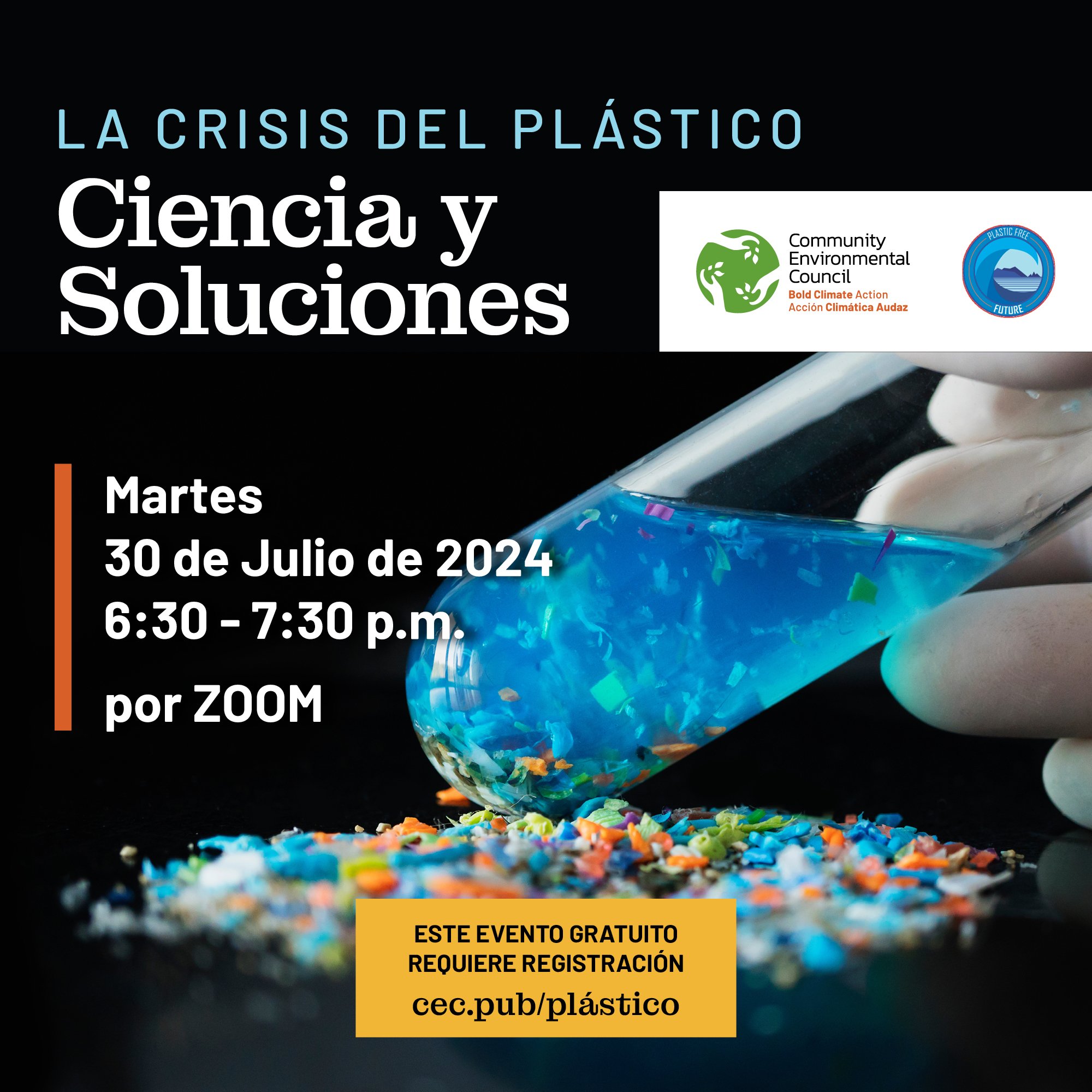
La Crisis del Plástico: Ciencia y Soluciones
El plástico está en todas partes. Como resultado, nuestros cuerpos y ecosistemas naturales contienen multitudes de microplásticos dañinos.
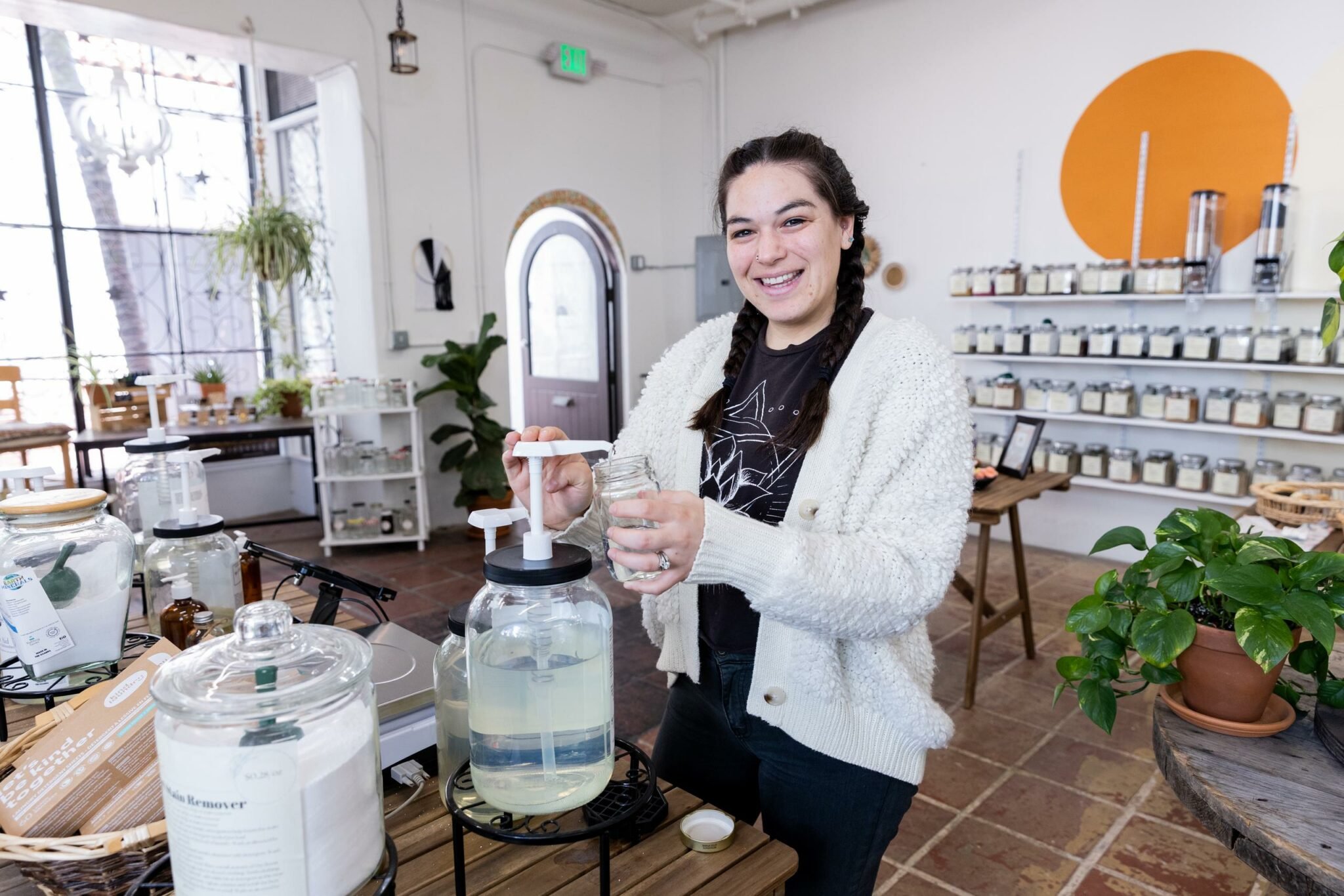
5 Ways To Cut Plastic Out of Your Life
Here are five actions you can take now to start cutting plastic out of your life, with links to lots of helpful resources.
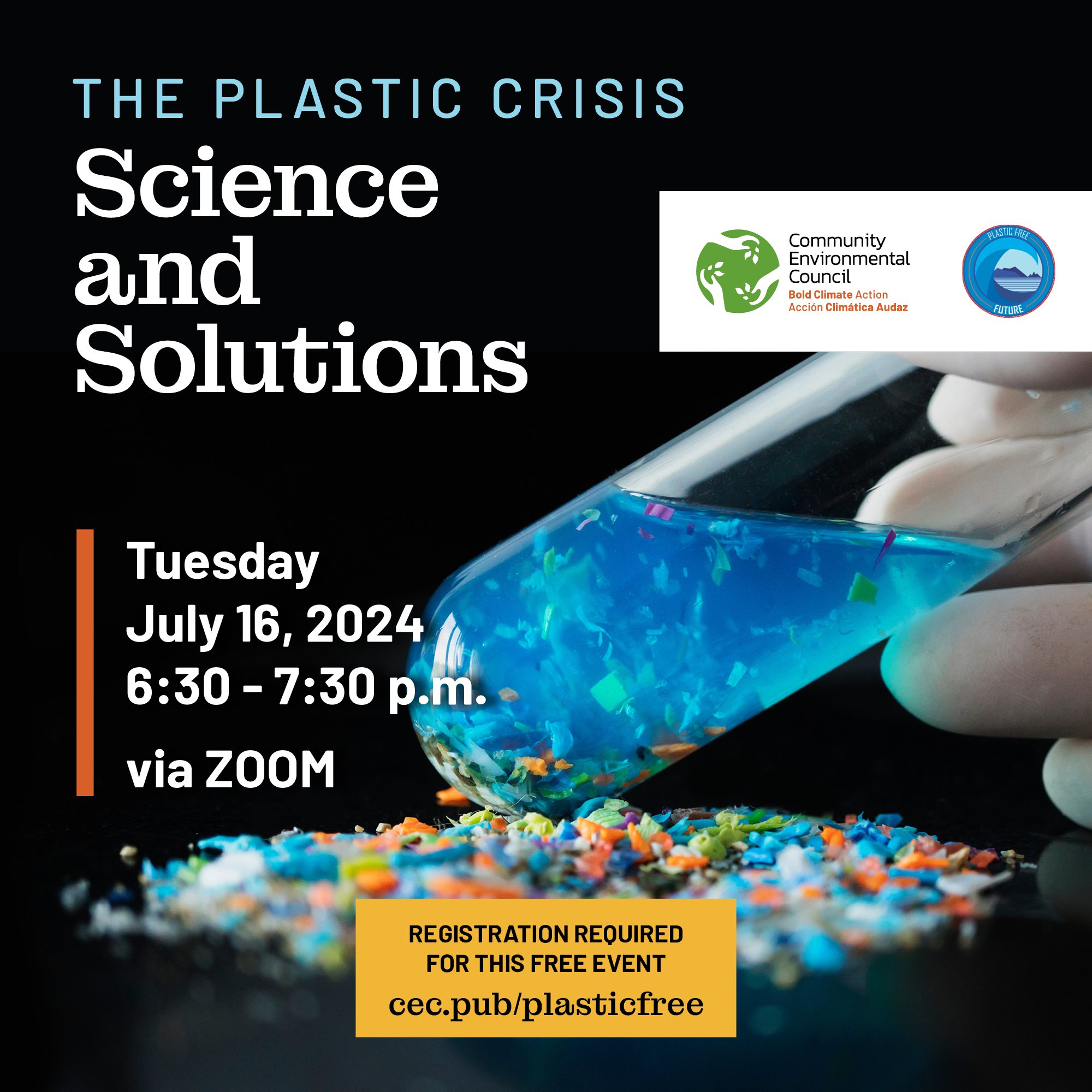
The Plastic Crisis: Science and Solutions
Plastic is everywhere. As a result, our bodies and natural systems contain multitudes of harmful microplastics.
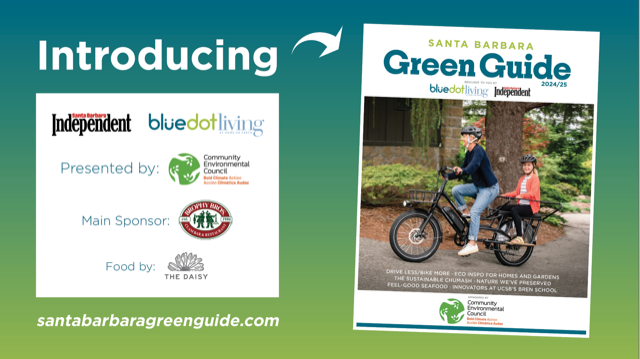

Plastic Free July and Beyond - Let’s Keep the Momentum Going!
California’s Central Coast has looked to recycling as a landfill diversion solution for several decades—but it’s not enough. That’s why the Community Environmental Council (CEC) is driving progress towards a zero-waste society, turning hard-to-reach waste streams into valuable resources that further reduce climate emissions.
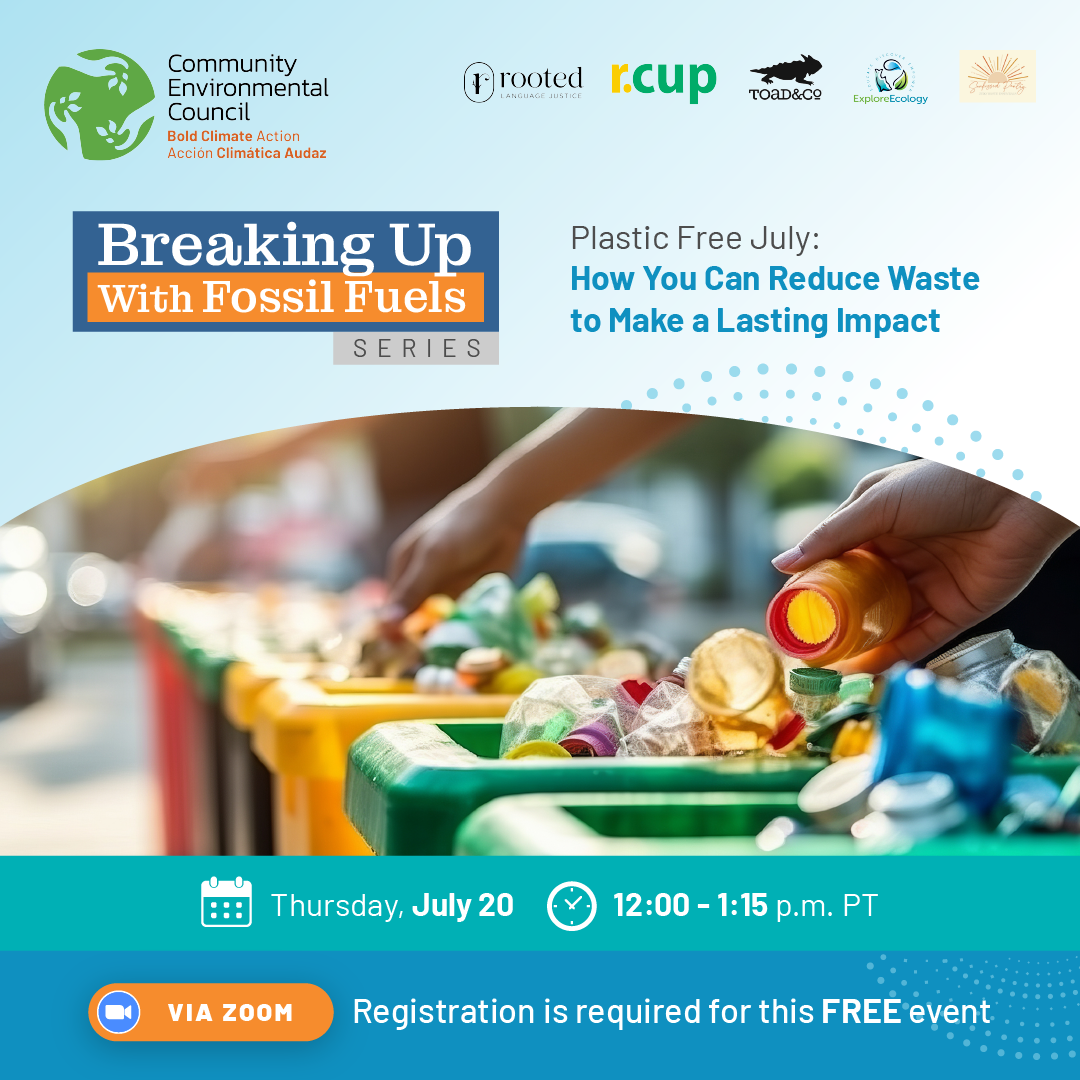
Plastic Free July: How You Can Reduce Waste to Make a Lasting Impact
We all know single-use plastic needs to go, but how do we work collectively to reduce our dependence on it?

How the Momentum of Recent Climate Policy Is a Win For You
Want to know why the recent wave of federal and California climate legislation is so exciting – and how it can help your pocketbook? Join us to learn how these tremendous policy developments are catalyzing climate momentum like never before.
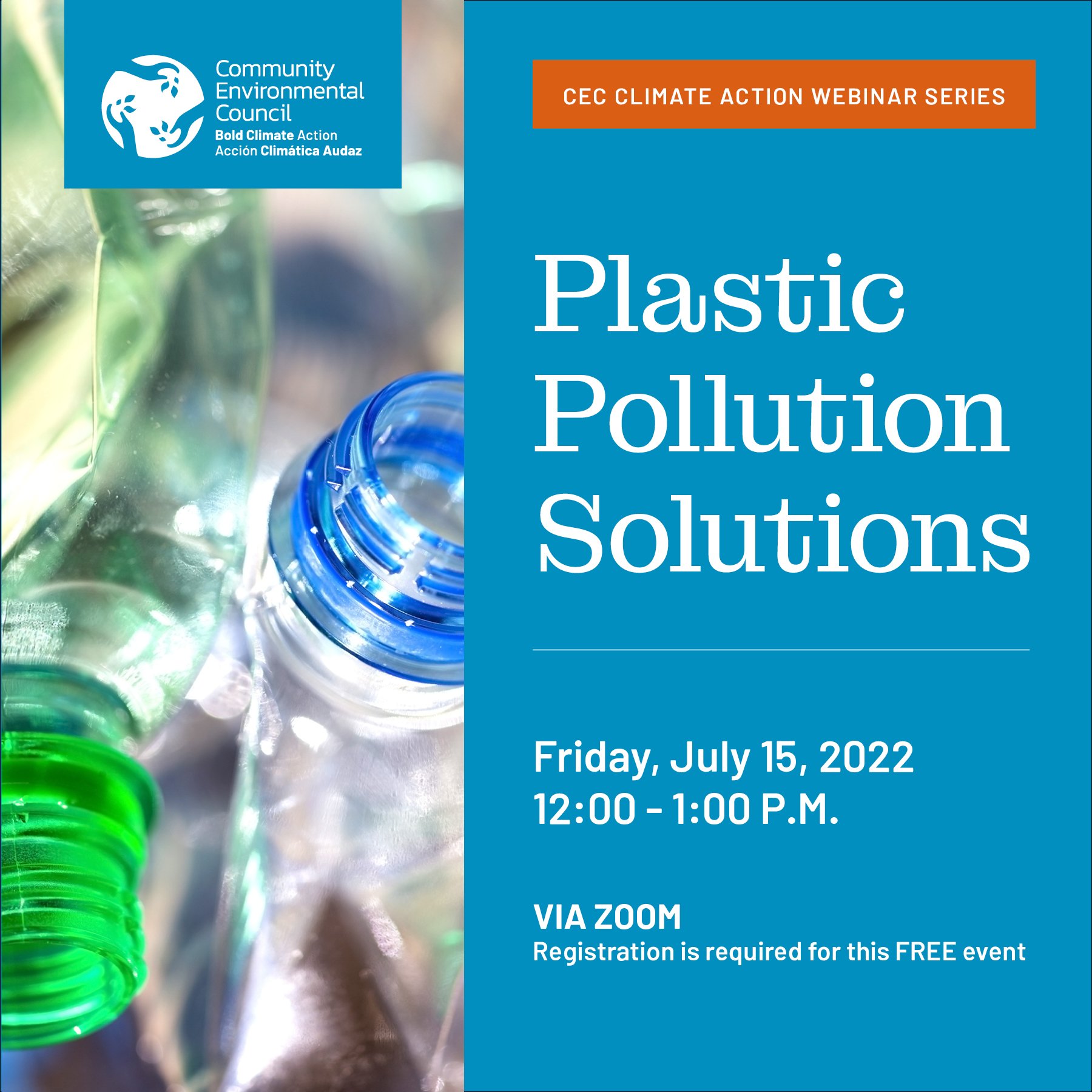
Plastic Pollution Solutions
Only five percent of our nation’s plastic waste was recycled in 2021, according to the Department of Energy. This dismal statistic underscores the growing failure of recycling to keep up with the growing volume of plastic trash.
This webinar covers plastics – recycling, reduction, and policy – focusing on local and state efforts to reduce waste. Viewers will be empowered to take immediate, collective action.
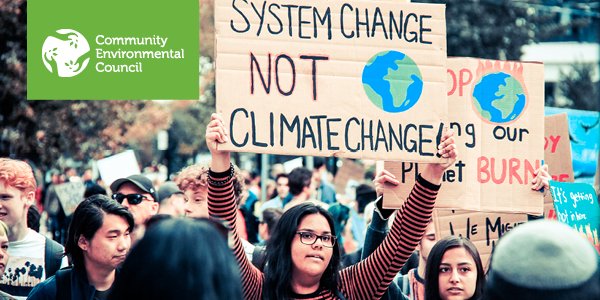
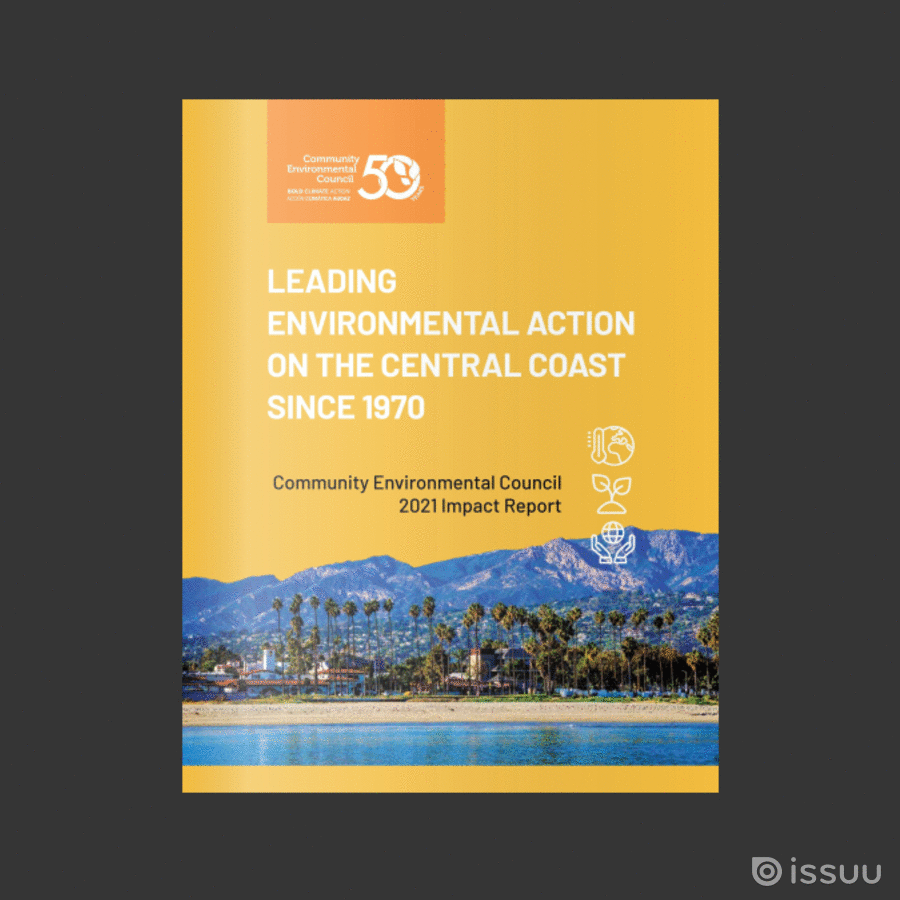
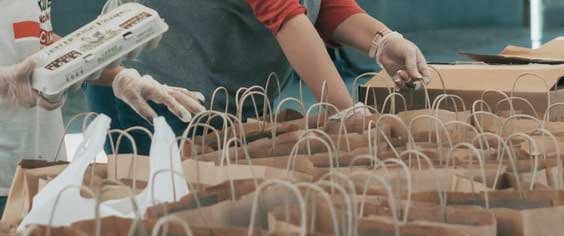
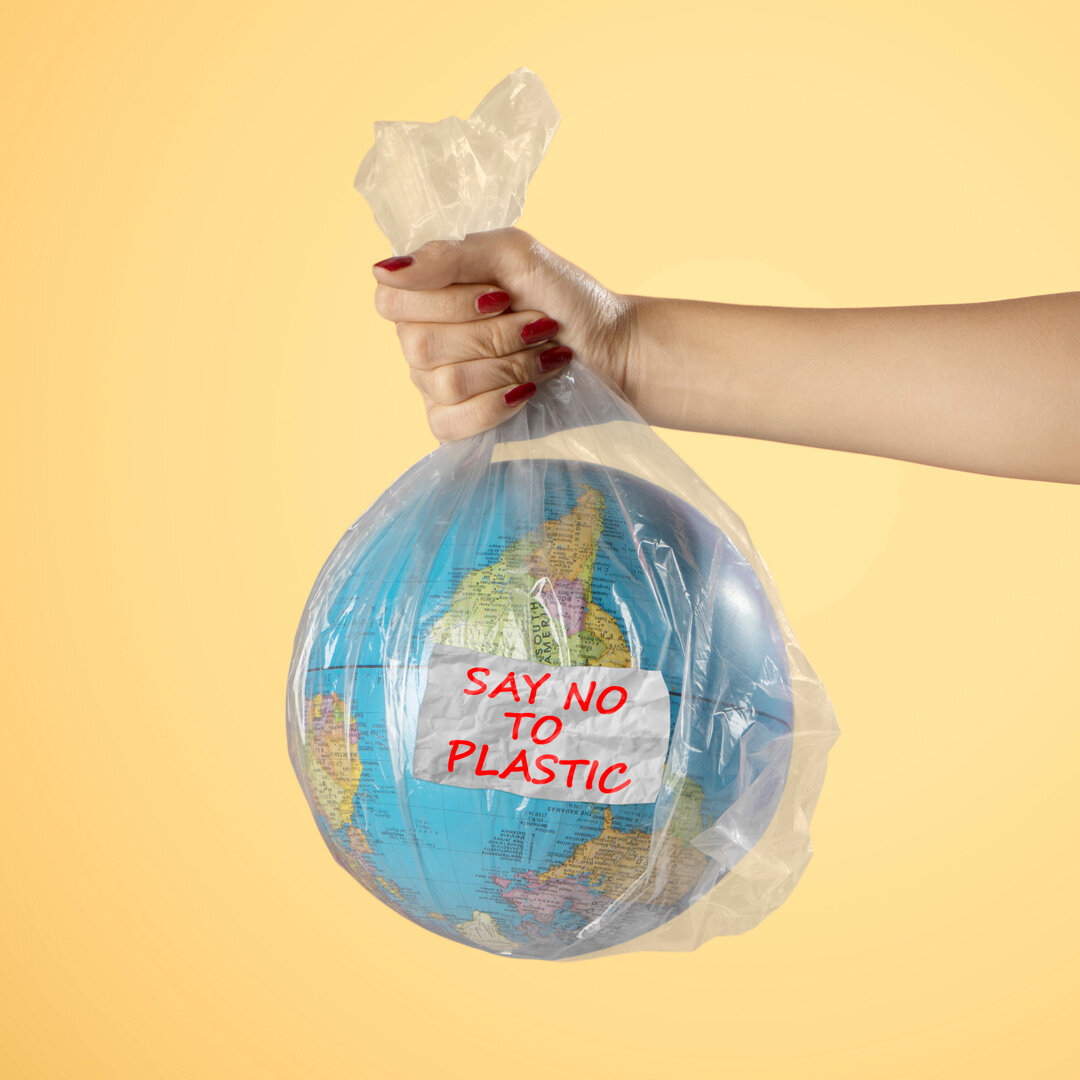

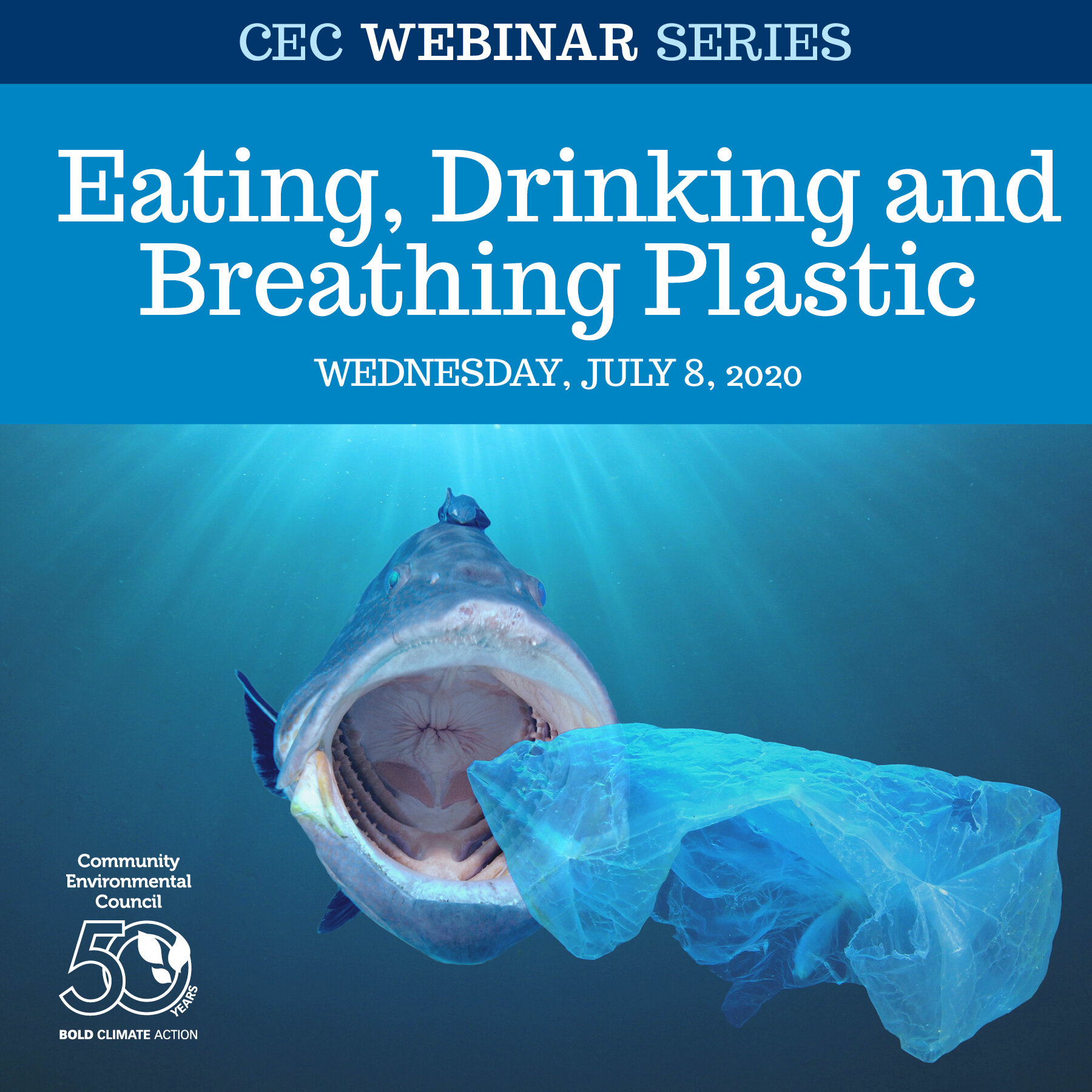
Eating, Drinking, and Breathing Plastic
Explore how CEC and partner Santa Barbara Channelkeeper have been working for over a decade to reduce the Central Coast’s dependence on single-use plastic. This event focused on the connection between our health and plastic at a time when the industry is using the pandemic crisis to roll back regulations on plastic bags and other packaging.
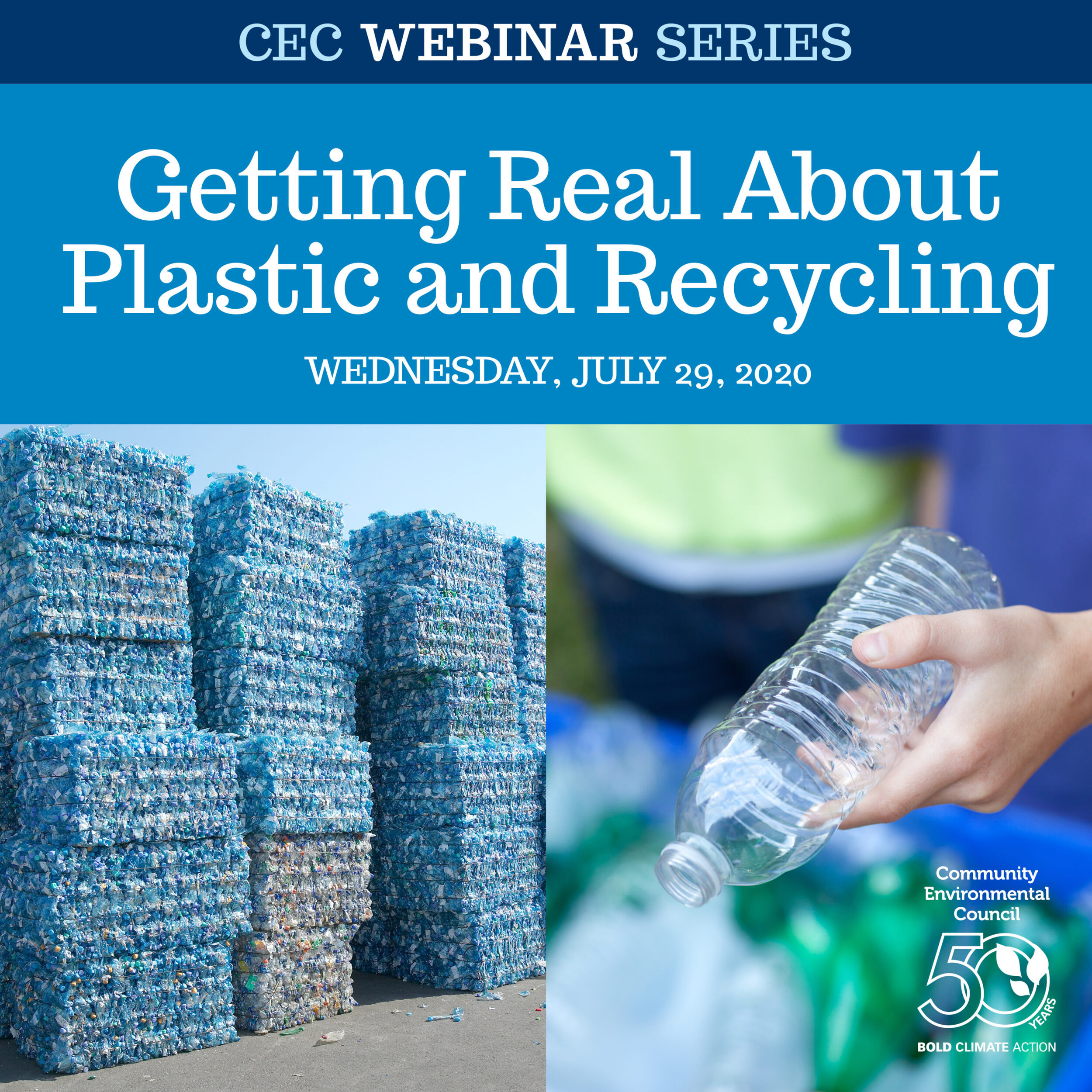
Getting Real About Plastic and Recycling
Learn about updates to the Ablitt’s film plastic program and review the dos and don’ts for Santa Barbara’s blue recycling bins with waste management experts from the City of Santa Barbara and MarBorg.

Combatting Hunger and Pollution with CalRecycle Grant
Food waste makes up nearly 20 percent of California’s disposal stream. At CEC, we are proud to share we were one of 36 grant recipients chosen by the California Department of Resources Recycling and Recovery (CalRecycle) to work toward projects that prevent waste, reduce pollution, and combat climate change by getting good food to Californians who need it.


Divert Film Plastic and Styrofoam
The Community Environmental Council (CEC) and Santa Barbara Channelkeeper (SBCK) are pleased to support Ablitt’s Fine Cleaners in collecting and repurposing hard-to-recycle film plastics.


WIN: City of Santa Barbara moves to #DitchPlastic
Your support helped the City of Santa Barbara continue to ditch single-use plastic. With a hundred signatures and individuals showing up to testify at City Council, a ban on Styrofoam food service items & retail sales will go into effect January 1, 2019, as well as a ban on plastic straws with a provision that food providers must ask customers if they need plastic cutlery or stirrers before providing.